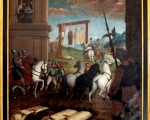
On this day in history events for 2nd to 8th May.
[Read More...]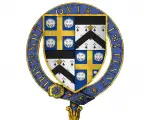
On 2 May 1536, Anne Boleyn was ordered to present herself to the Privy Council. Standing before the Duke of Norfolk, Sir William Fitzwilliam and Sir William Paulet, Anne Boleyn was arrested for committing adultery with three men: Mark Smeaton, Henry Norris and an unnamed man.
After lunch, Anne was escorted from Greenwich to the Tower of London. Popular myth tells of how Anne entered the Tower of London from the Thames through ‘Traitors Gate’. However, researchers and historians suggest that she would have arrived through the Court Gate near the Byward Tower – which was the common entrance for people of nobility and royalty. Here she was met by Sir Edmund Walsingham, the Lieutenant of the Tower, and escorted inside.
[Read More...]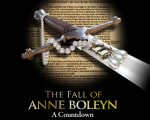
Listen to the recording of today’s events in 1536 from Claire Ridgway’s book “The Fall of Anne Boleyn”.
[Read More...]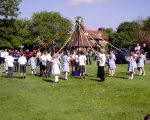
1 May was seen as the first day of summer and had its roots in ancient celebrations of fertility. It was celebrated with special processions, plays and pantomimes, pageants, Morris dancing and the crowning of a May Queen. There would also be a Maypole, a tall wooden pole decorated with greenery and flowers and hung with ribbons. People would hold the ribbons and dance around the Maypole weaving the ribbons together in patterns.
[Read More...]
Listen to the recording of today’s events in 1536 from Claire Ridgway’s book “The Fall of Anne Boleyn”.
[Read More...]
Read the transcript from our live chat session with Stephanie Mann about Thomas More.
[Read More...]
Listen to a sample of The Fall of Anne Boleyn which we’ll be serialising from 1 to 19 May.
[Read More...]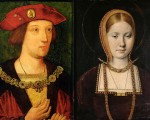
In today’s Claire Chats, I talk about Catherine of Aragon, her marriage to Arthur Tudor and its implications in Henry VIII’s quest for an annulment of his marriage to Catherine.
[Read More...]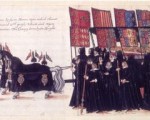
On 28th April 1603, Queen Elizabeth I’s funeral took place in London.
After her death on 24th March 1603, the body of Queen Elizabeth I was placed inside a lead coffin and carried by night in a torchlit barge along the Thames from Richmond Palace to Whitehall. There, the Queen was to lie in state until her funeral, giving time for the new king, King James I (VI of Scotland) to travel down to London. While the coffin lay in state, a life-size effigy of the Queen, dressed in her royal robes, was placed on top of it to act as a symbol of the monarchy while there was no monarch in England.
[Read More...]
Around 23 April 1564, a great mind was born in a small English market town. Such an immortal mind was baptised on 26 April 1564 in Stratford-upon-Avon in Warwickshire. With inauspicious beginnings as the third of six children born, first to survive infancy, to a leather merchant and landed heiress, William Shakespeare would go on to lead the life of an intellectual lion, whose roar can still be heard throughout the world today.
Shakespeare’s first poems, “The Rape of Lucrece” and “Venus and Adonis” were dedicated to his patron, Henry Wriothesley, Earl of Southampton, in the early 1590s. Beginning around 1594, Shakespeare joined a theatrical company known as the Lord Chamberlain’s Men, with the name changing to the King’s Men upon the accession of James I in 1603. Shakespeare is credited with writing more than 154 sonnets and 37 plays.
[Read More...]
Today, 23rd April 2016, is the 400th anniversary of the death of William Shakespeare on 23rd April 1616, a day which is also traditionally his birthday.
Now I’m fond of Shakespeare, not only because I grew up just 12 miles from Stratford-upon-Avon, bis birthplace, but also because I love his work. I studied his plays at school and university, and I was fortunate to see a few of his plays being performed by the RSC. I have vivid memories of seeing Jonathan Pryce and Sinead Cusack in Macbeth and Jerome Flynn and Sophie Thompson in As You Like It. To this day, I can still recite Macbeth Act 1 Scene 1 by heart and a fair few lines of Hamlet’s To be or not to be soliloquy. And one of my favourite films is Baz Luhrmann’s version of Romeo and Juliet. Yes, it’s safe to say that I love the Bard!
[Read More...]
Claire & Tim Ridgway, plus 17 other authors, many well-known history bloggers AND the Mary Rose Museum will be getting together on 24 September in central London for an amazing event “An Evening with the Authors”.
[Read More...]
Yay! I’m so excited! On 24th September eighteen of MadeGlobal Publishing’s authors will be in London for “an evening with the authors”. This is your chance to mingle with 18 Tudor history authors (many of whom are Tudor Society contributors), have your photo taken with them by a professional photographer, get their autographs, discuss your book idea with MadeGlobal Publishing, and fire questions at the authors in a Q&A session.
[Read More...]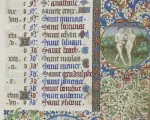
In today’s Claire Chats I talk about the importance of the religious calendar in Tudor people’s lives.
[Read More...]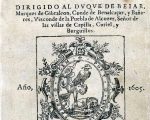
iguel de Cervantes Saavedra, author of Don Quixote, died on 22 or 23 April 1616 in Madrid. Born in about 1547 to a deaf surgeon, Cervantes spent his childhood in poverty. The profession of surgeon was not at all high-paying. Cervantes’ exact date of birth is unknown, but a baptismal certificate was discovered that lists his baptism date as 9 October. It is posited that Cervantes was born on 29 September, St. Michael’s day, hence his forename of “Miguel.” Cervantes and his family moved from place to place in pursuit of better employment for his father. It is unknown what, if any, formal education Cervantes had, but he did learn how to read and became an avid reader.
[Read More...]
As part of the celebrations for Shakespeare 400, the 400th anniversary of William Shakespeare’s death on 23rd April 2016, Shakespeare Lives, FutureLearn and the British Council are running a six-week online course – Exploring English: Shakespeare.
[Read More...]
On this day in history, 21st April 1509, fifty-two-year-old King Henry VII died at Richmond Palace, passing the throne on to his seventeen-year-old son Henry, who became King Henry VIII.
[Read More...]
As today is the 90th birthday of Queen Elizabeth II, I thought I would mark the occasion with a fun quiz on her. How much do you know about Queen Elizabeth II? Test yourself now. Good luck!
[Read More...]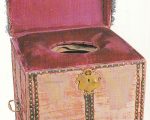
The Groom of the Stool, or, as the official title was known, The Groom of the King’s Close Stool, has gone down in history as one of the grossest jobs available. As the name suggests the Groom of the Stool was responsible for attending to the King’s toileting needs. The Groom would care for the King’s toilet, known in the Tudor period as a ‘Stool’. He would be responsible for supplying water, towels and a washbowl for the King when he had finished his business. There is some debate as to whether or not the Groom of the Stool was responsible for wiping the King’s behind, with some believing he did and others thinking his duties did not extend to that extreme.
While being responsible for the King’s bodily functions may seem quite disgusting for us in today’s times when going to the bathroom is considered to be a private matter, it was very, very different in the Tudor age.
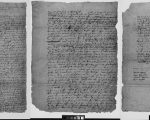
The National Archives have “carried out innovative archival and scientific research into the will of one of the world’s greatest ever playwrights: William Shakespeare” and you can read all about it on their website.
[Read More...]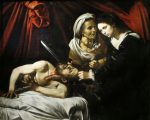
Do you keep up to date on history news? Test yourself on recent discoveries and history news with this fun quiz.
[Read More...]
 Thank you to Heather for sharing with us this article on "Katharine of Aragon's Spain: the Moorish Influence of Convivencia on the Newly-Modern Kingdom".
Thank you to Heather for sharing with us this article on "Katharine of Aragon's Spain: the Moorish Influence of Convivencia on the Newly-Modern Kingdom".
Prior to Isabella of Castile and Ferdinand of Aragon, the Catholic Monarchs, finally removing the last Islamic presence from the Kingdom of Granada, there was a considerable Islamic and Jewish presence that lasted over 700 hundred years.
The Muslims first came to Spain during the Umayyad conquest of Hispania around the year 711, when they invaded from North Africa. At the time, the Iberian Peninsula was a Visigoth kingdom. The area of the Iberian Peninsula controlled by the Muslims was called Al-Andalus. After the invasion, conversion from Christianity to Islam was advantageous. There was relative peace in Muslim-controlled Spain for about three hundred years. The main cities of Al-Andalus were Granada, Toledo and Cordoba.
[Read More...]

Regular contributor, Tudor Society member and historian Derek Wilson has just informed me that an article he has written on Richard III is the lead feature article in the very first issue of “History of Royals” magazine which comes out on 14 April.
[Read More...]
Our regular contributor Heather R. Darsie reviews the short film “I am Henry”…
I had heard and read of the acclaim achieved by Flying Dutchman’s film, “I am Henry,” but did not know what to expect. I sat down with my laptop, thinking I was about to watch simply another film about the dynamic between Henry VIII and Anne Boleyn. I could not have been more wrong.
The setting is simple but beautiful, and the lighting lends itself to that of a person whose mind is slowly being overtaken by the dreamy haze of death. The color balancing is consistent throughout and gives the appearance that the film is lit indeed by only the source light of the January sun and candles. Great care was taken in planning each shot and it shows. Put simply, the thoughtful cinematography was executed flawlessly.
[Read More...]